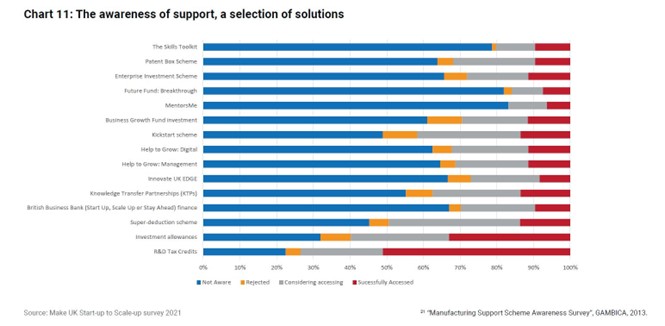
Since its inception in October 2016, the Manufacturing Growth Programme (MGP) has been seen as a catalyst for job creation and business expansion in the UK's manufacturing sector. Over the years, the programme has supported small and medium-sized enterprises (SMEs) across England, resulting in the creation or preservation of more than 12,435 jobs.
Extending to more than 4,500 enterprises across the country, the MGP has paved the way for substantial growth, as well as safeguarding existing jobs. Research indicates that over 95 per cent of the businesses benefiting from the programme anticipate significant growth in the next five years. Among the key areas of impact cited by 63 per cent of businesses is the creation of new products, highlighting the programme's role in fostering innovation and diversification.
The programme has funded £13.9 million in grants which are disbursed by a team of Manufacturing Growth Managers. This injection of capital has not only directly fuelled growth but has also encouraged private sector investment, resulting in a £25.7 million in funds from private sources.
How A Lack Of Awareness Is Holding Back Support Schemes
The Manufacturing Growth Programme is an example of how strategic support and investment can energise the manufacturing sector, drive job creation, and fuel economic growth. However, the MGP is only one such programme, and its origins lie in the abandonment of the Manufacturing Advisory Service (MAS) which was created in 2002 to offer technical and strategic advice to manufacturing SMEs.
Backed by £27 million funding, half of which was provided by the Government, in its first year the MAS improved business productivity by 30 per cent, reduced waste by 37 per cent, and increased inventory turnover by 90 per cent.
In 2010, the MAS experienced a 25 per cut in funding and, with no warning, was abolished in 2015 as part of the Conservative government’s austerity programme.
The Help to Grow Digital scheme promised 100,000 vouchers to boost digital skills among UK small businesses by offering a grant of up to £5,000 to cover up to 50 per cent of the costs of selected digital software. Due to low take-up – less than 1,000 vouchers were issued – the scheme was shelved in February 2023.
1% take up is appalling – the question is – why was it so slow?
Was the product not attractive, was the marketing or targeting incorrect, or did businesses simply not hear about it?
How Effective Delivery Vehicles Are Needed To Raise Awareness
Effective delivery vehicles, including targeted marketing and outreach campaigns, are urgently needed to bridge this awareness gap and ensure that more small businesses can benefit from the support programmes and grants on offer for manufacturing SMEs.
This is one of the reasons why, at Hone-All, we are calling for the creation of a dedicated Minster for Manufacturing, or similar senior Government post, to more effectively coordinate support schemes and ensure that targeted help is provided for an industry that has faced a multitude of challenges in recent years, including supply chain bottlenecks, shortages of raw materials, and labour deficiencies.
If you want to learn more about the campaign our Director is spear heading, please follow Andrea on LinkedIn or visit www.supportukmanufacturing.com for more information. Click here if you'd like to get in touch with the Hone-All team.







